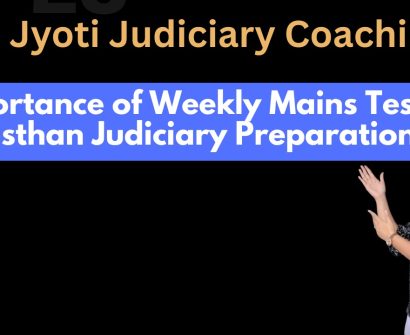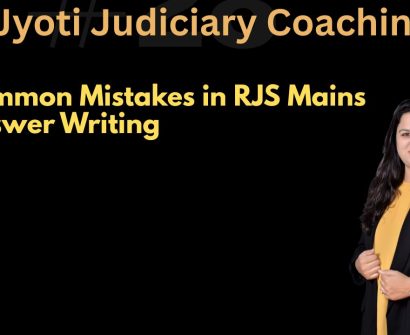
Every society has crime, which is commonly defined as an unlawful act, omission, or action, as well as criminal laws. These criminal laws’ primary objective according to the discussions by experts from various RJS Coaching institutes is to protect society by punishing offenders, but they also have to take equality, justice, and fair play into account. A trial process is established in order to fairly and rationally establish the accused’s guilt. A breach of a law or regulation that carries legal penalties is called an offense.
Compoundable Offense: About
The compoundable offenses are covered under Section 320 of the CrPC. Compoundable offenses are those for which the victim, or the party that brought the complaint, reaches a settlement and consents to the dismissal of the accused’s accusations. A “bonafide” compromise, though, should not be made in exchange for something the plaintiff isn’t entitled to.
Categories:
- Prior to compounding, causing a miscarriage, intentionally causing great harm, criminal breach of trust, bigamy, etc. are the offenses for which the court must grant permission.
- Prior to compounding, willful harm to another person, unlawful detention or restraint of an individual, assault or use of force, theft, deception, criminal trespass, adultery, etc. are the offenses that are not subject to court permission.
Non-Compoundable Offense: About
These offenses are all non-compoundable offenses since they are not included in the list under the virtue of Section 320 of the CrPC. Non-compoundable offenses are those that cannot be compounded. All you can do is quash them. The reason behind this is that the accused is unable to let off from responsibility because the nature of the offense is so serious and illegal.
Compoundable vs Non-Compoundable Offenses: Key Differentiation
There is a major differentiation between compoundable and non-compoundable offenses that are often discussed by the RJS Coaching institutes for the purpose of judiciary exams. They are as follows:
| COMPOUNDABLE OFFENSES | NON-COMPOUNDABLE OFFENSES |
| A compoundable offense has a less serious aspect to its offense. | A non-compoundable offense has a grave aspect to its offense. |
| It is possible to drop charges against an accused individual who has been accused with a compoundable offense. | It is not possible to drop charges against an accused individual once they have been filed who has been accused of a non-compoundable offense. |
| When an offense is compoundable, it only impacts that one person. | When an offense is non-compoundable, it only impacts the individual as well as the society as a whole. |
| A settlement may be struck in the context of a compoundable offense with or without the court’s approval. | The non-compoundable offense can only be quashed; it cannot be compounded. |
| Cases involving compoundable offenses are usually brought by private parties. | The state is the body that files the case when there is an offense that cannot be compounded. |
| Compromise is allowed in the context of compoundable offenses. | Compromise is not allowed in the context of non-compoundable offenses. |
| The court has the jurisdiction and ability to add other charges to such an offense. | The court lacks the jurisdiction and ability to add other charges to such an offense. |
| Examples: Trespassing in a residence or on the property (Section 448 IPC), Criminal violation of a service agreement (Section 491 IPC), etc. | Examples: Intentionally harming others with potentially lethal weapons or methods (Section 324 IPC), Rash riding or driving on a public road (Section 279 IPC), etc. |
Compounding in offenses that are non-compoundable
- After receiving a prison term, the person who committed the crime should never consider doing the same crime again. Fundamental to criminal law is the idea that while hundreds of offenders may be freed from punishment, no innocent person should ever be imprisoned.
- Perhaps as a result, the strict application of criminal law is somewhat loosened, allowing some offenses to be compounded. These are the kinds of crimes where the criminality that may be linked to the offender is either negligible or not there at all. Sections 320(1) and (2) of the 1973 Code of Criminal Procedure (CrPC) provided them with a home.
- According to Sections 320(1) and (2) of the Criminal Procedure Code, it is possible to compound some offenses without the court’s consent. Others, however, can only be combined with the court’s approval. On the other hand, even with the consent of the court, non-compoundable offenses cannot be compounded.
Landmark Judgements:
The major landmark judgment that is commonly discussed by the expert teachers in the RJS Coaching institutes is as follows:
- In the case of Mahesh Chand v State of Rajasthan, in order to provide the parties with full justice, the Supreme Court used its authority under the virtue of Article 142 of the Constitution to allow the compounding of non-compoundable offenses. However, this ruling was viewed as per curium in the subsequent case of Ram Lal v State of J&K since it was believed that Section 320(9) was entirely disregarded and that the law was not given the proper consideration.
- In the case of B.S. Joshi v State of Haryana, in order to provide justice for the parties’ concerns, the SC is asked if the High courts have any authority to halt proceedings involving non-compoundable offenses under Section 482 of the Code. In response, the court gave a positive response, stating that the High courts are entitled to use their inherent authority to get involved in cases involving non-compoundable offenses in order to further the interests of justice.
Therefore, it can be said that offenses that have criminal culpability seized at the moment of compromise are considered compoundable offenses. On the other hand, crimes that cannot be compromised or for which criminal liability persists even after the offense has been compromised are classified as non-compoundable offenses. Nonetheless, the Court takes into account all the circumstances before allowing compounding for any offense. To guarantee justice for everybody and stop injustice in whatever form, this is an essential step.









